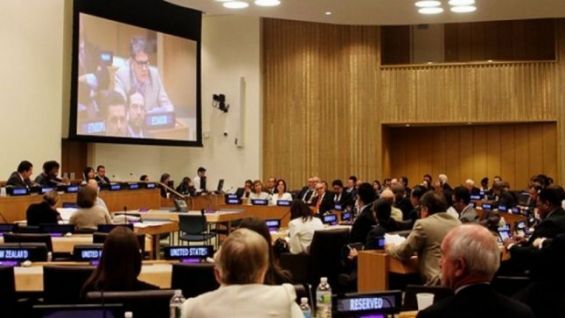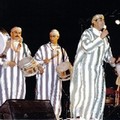Saint George’s, the capital city of the Caribbean island of Grenada, was home from the 2nd to the 4th of May to a regional seminar held by the UN Special Committee on Decolonization with Regard to the Implementation of the Declaration on the Granting of Independence to Colonial Countries and Peoples.
The UN seminar was an opportunity to shed light on the Western Sahara dispute. During this meeting, which was attended by Morocco’s representatives, the Polisario’s representative to the United Nations Sidi Mohamed Omar delivered a presentation on the situation in Western Sahara, reports SPS.
In his presentation, Omar stressed that the Western Sahara conflict is an «international dispute between two known parties», referring to the Polisario Front and Morocco. He also claimed that the separatist movement is «the legitimate representative of the Western Sahara people».
While he repeatedly referred to Morocco as an «occupying force», Sidi Mohamed Omar indicated that «Morocco’s attempts to establish sovereignty over a nonautonomous territory is what makes the decolonization process hard to obtain».
To the Polisario representative, the fact that the Western Sahara question is raised before the Special Committee on Decolonization «proves that the process in question has not started yet».
Elected representatives from the Sahara
Meanwhile, Omar insisted on «the right of the Sahrawi people to self-determination». «What is important is to put an end to Morocco’s illegal occupation of the territory and give its people the opportunity to exercise their right to self-determination and independence», he concluded.
While the Polisario’s representative to the United Nations made mention of Sahrawis’ «right to self-determination» and «independence», resolution 2468, adopted on April the 30th by the UN Security Council stressed on words like «compromise». Indeed, the new resolution, which extended the mandate of MINURSO by six months, did not refer to the word «referendum».
At the Caribbean regional seminar of the UN Special Committee, Morocco was represented by elected Sahrawis from the southern provinces, who explained «democratic and socio-economic progress of their respective regions», reports MAP press agency.
Just like the previous year, the Kingdom decided to rely on elected representatives from the Sahara, including Laayoune Sakia El Hamra, and Dakhla Oued Eddahab. During this seminar, Morocco’s representatives seized the opportunity to highlight the autonomy plan proposed by the Kingdom in 2007, as well as the development programs that has been launched by King Mohammed VI in the southern provinces since 2015.





 chargement...
chargement...













